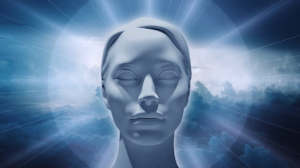Commentary by Joshua R. Farris
If you’re a purveyor of recent neuroscience discussions, then you might think that consciousness is just a set of neurons firing in the brain. Nothing more. No soul or spirit behind it. Philosopher Matthew Owen takes this question head-on in his new book Measuring the Immeasurable Mind. In it he shows that the common assumption in popular media is wildly off the mark.
 But, what is the claim or set of claims against the existence of the soul, really? Well, there’s a common assumption that the conscious mind is nothing more than neurons firing in the brain, i.e., they are somehow identical. Another more modest claim is that consciousness is just the product of the complex patterns that form when these neurons fire in the brain.
But, what is the claim or set of claims against the existence of the soul, really? Well, there’s a common assumption that the conscious mind is nothing more than neurons firing in the brain, i.e., they are somehow identical. Another more modest claim is that consciousness is just the product of the complex patterns that form when these neurons fire in the brain.
Trained biochemical engineer Max G. Levy describes this more modest claim when he says: “Every thought that crosses your mind has, literally, crossed your mind, as millions of neurons in different parts of the brain chatter with one another… Consciousness emerges from that dialog.”
What Levy describes are often called neural networks. Enthusiastic reports have recently been advanced regarding these neural networks that may go too far in purporting that they explain consciousness, according to Owen. But to claim or assume that these neural networks merely equate to or give rise to consciousness may go too far—says Owen. We need to slow down and take a closer look at the data from neuroscience.
The possibility finds its footing in the debate over what is called the Neural Correlates of Consciousness (often just called NCC in the neuroscience literature) gathered from brain scans and personal reports of individuals undergoing those scans. And, there is a striking growth of data that aids in our understanding of brain function. This much we should be thankful for. But, despite what is commonly assumed, it is not at all clear that these Neural Correlates of Consciousness suggest that consciousness is the product of them.
The NCC’s are purported to show is that there is no longer a need for consciousness that exists as a distinct thing from the brain—something like what was traditionally called a soul. Neuroscientists Francis Crick, co-discoverer of the DNA double helix, and Christof Koch made famous some of the discoveries of the apparent intimate relationship between NCC’s and consciousness. Crick was one of the notable challengers to the idea that physical or chemical bases for consciousness were sufficient for explaining consciousness—even despite the growing and impressive data collection between brains and consciousness.
Owen develops this notable challenge by showing that we need take careful note of what we are actually gathering from these brain scans of NCC’s.
Whereas, they certainly seem to show a correlation between brain-states and mind-states, but at the same time they do not support in any way the following assumptions thought to rule out a soul. First, they don’t show that consciousness just is neurons firing in some complex pattern. Second, they don’t show that consciousness is the product of neurons firing in some complex specified pattern. Third, they don’t show that neurons are sufficient causes for conscious experiences or thoughts because we know that sometimes by applying ‘reasons’ we, you and I, determine to act in specific ways by intending to do so or trying to do so by an act of will not by neurons firing.
In the end, Matthew Owen shows us, once again, that there is still a place for the soul despite the claims of some to the contrary.
Joshua R. Farris is Professor of Theology of Science at Missional University. He works for Raising Families. Previously he was the Paluch Professor at Mundelein Seminary, Lecturer in Ethics at Auburn University at Montgomery, and Assistant Professor of Theology at Houston Baptist University. He writes for numerous sites. His areas of specialty, of which he has numerous citations, include the philosophy of the soul, human nature, human survival after death and several other topics at the intersection of science, theology, ethics, and philosophy.

You must be logged in to post a comment Login